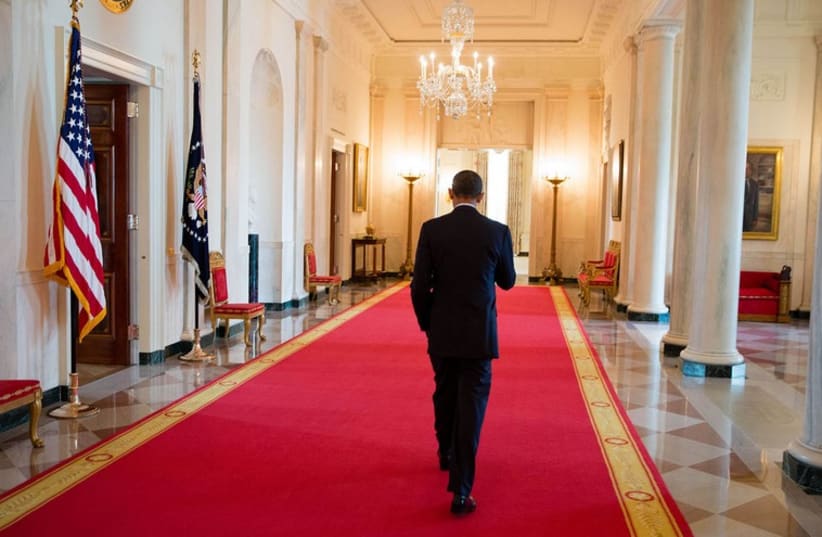Despite attempts by Prime Minister Benjamin Netanyahu to clarify comments made during his election campaign that a Palestinian state would not emerge under his tenure, the White House will nevertheless "still evaluate" its policy on the Middle East peace process, Press Secretary Josh Earnest told reporters on Thursday.
The prime minister's comments, he said, call into question his commitment to the pursuit of peace and have forced the US government to reassess the the government's stance.
With a sharpened tone since first reacting to Israel's election results on Wednesday, Earnest characterized Netanyahu's suggestion that Arabs were voting "in droves" against him as a "cynical Election Day tactic."
The US has supported two states for two peoples, the Jewish state of Israel and a Palestinian state of Palestine, for decades.
"Certainly, the prime minister's comments from a few days ago called into question his commitment to that," State Department spokeswoman Jen Psaki said on Thursday.
"We believe he changed his position," she continued. "We can't forget about those comments."
The White House said that US President Barack Obama and his administration would be carefully watching the actions of Netanyahu, his party and his coalition moving forward.
But the State Department further warned that, despite its reassessment, it still supports Palestinian cooperation with the Israelis on security matters.
"It's not about showing our displeasure," Psaki continued, encouraging skepticism regarding reports that the US has already reconsidered its position at the United Nations. "It's about finding a way forward." US officials acknowledged earlier in the day a willingness to reconsider the use of its veto at the UN Security Council on matters concerning the peace process.The Palestinians have sought a path to statehood outside negotiations with Israel through the UN. But longstanding US policy has been to oppose unilateral actions from either side.Psaki said that the Obama administration would not change that aspect of its position. But the president is open to reevaluating all avenues that may further the peace process, she said, which could include a non-binding resolution endorsing two states along pre-1967 lines, with mutually agreed land swaps.Netanyahu said in an interview with MSNBC's Andrea Mitchell on Thursday that he never retracted his speech in Bar Ilan University six years ago calling for a demilitarized Palestinian state that recognized the Jewish state.“I want a sustainable peaceful two-state solution. But for that, circumstances have to change,” he said.Netanyahu said that while he has not backtracked on his Bar-Ilan University speech, the reality has changed. He blamed Palestinian Authority Mahmoud Abbas for being responsible for part of that change in reality, saying that he refuses to recognize Israel as a Jewish state, and has made a pact with Hamas that calls for Israel's destruction.He also said that all territory vacated in the Middle East is taken over by Islamist forces.When Asked about his comments on Election Day where Netanyahu urged his supporters to vote because Arab voters were going to the polls en masse, he said his words referred to a “massive foreign funded effort” to try to get out votes for a specific party (the United List), which he called “an amalgamation of Islamists and other anti-Israel groups.“I said when that happens, make sure we get out our vote,” he said. “I wasn’t trying to suppress a vote, I was trying to get something to counter a foreign funded effort to get votes that are intended to topple my party, and I was calling on our voters to come out.”Netanyahu dismissed allegations he was racist."I'm not," he said. Herb Keinon contributed to this report.
